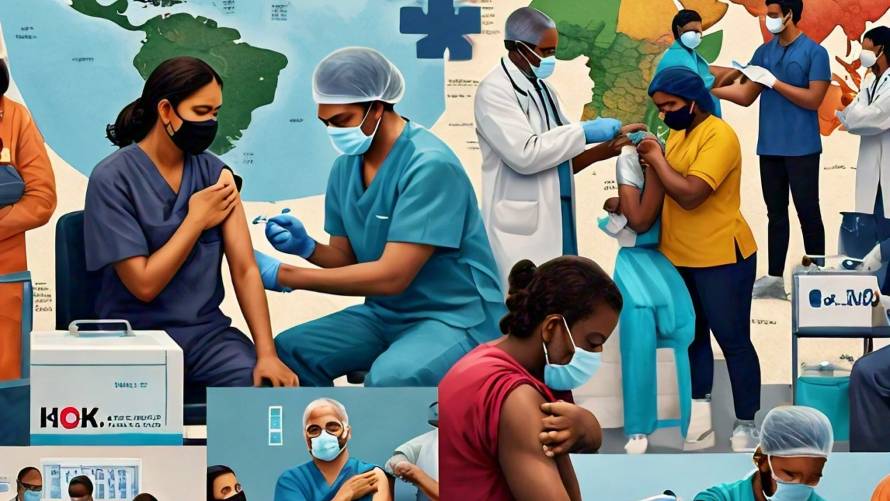Study Finds Majority Still Willing to Get Vaccinated Against Various Diseases
A new survey conducted across 23 countries, representing more than 60% of the world’s population, has found that a substantial proportion of people remain willing to get vaccinated against various diseases, including COVID-19. The study, published in Nature Medicine and co-led by the Barcelona Institute for Global Health (ISGlobal) and the Graduate School of Public Health and Health Policy of the City University of New York (CUNY SPH), highlights the importance of maintaining public trust in vaccination efforts.
The COVID-19 pandemic led to the rapid development of safe and effective vaccines, resulting in the largest vaccination campaign in history. However, as the virus continues to circulate and mutate, variant-adapted boosters are still needed, especially for those at higher risk of severe disease and death.
“Today, vaccine hesitancy, pandemic fatigue and vaccine fatigue are major challenges to ensuring that people stay up to date with their vaccinations, including COVID-19 boosters,” says Jeffrey V. Lazarus, head of the Health Systems Research Group at ISGlobal, Professor of Global Health at CUNY SPH, and coordinator of the study.
Healthcare Providers and WHO Remain Most Trusted Information Sources
The survey, conducted in October 2023 with 23,000 adult participants, found that the intent to get a COVID-19 booster was slightly lower (71.6%) compared to 2022 (87.9%). However, the global population’s overall trust in vaccination did not diminish, with more than 3 in 5 participants (60.8%) stating they were more willing to get vaccinated for diseases other than COVID-19 as a result of their experience during the pandemic.
The study also evaluated public trust in information sources used during the pandemic, revealing that healthcare providers (with a score of 6.9 out of 10) and the World Health Organization (6.5 out of 10) were the most trusted sources. This finding highlights the importance of continuing to rely on these sources in future communication campaigns.
“This finding suggests there is a general openness to vaccination that can be used to boost confidence in new generations of COVID-19 vaccines and boosters,” says Ayman El-Mohandes, study co-author and Dean of the City University of New York School for Public Health & Health Policy. “We must design targeted messages for trusted communicators to encourage vaccine uptake.”
However, the survey also revealed variability in trust levels across countries, with religious leaders ranking 3.16 in Sweden but 6.72 in India. The study authors emphasize the need for culturally appropriate local communication strategies to improve vaccine confidence globally.
As the world continues to face potential new pandemic threats and the need to catch up on routine immunizations, monitoring vaccine confidence remains crucial. The highly representative survey data across different geographic regions and demographic groups provide valuable insights for policymakers and health organizations in their efforts to promote vaccination and protect public health.
Keyword/Phrase: Global Vaccine Confidence


